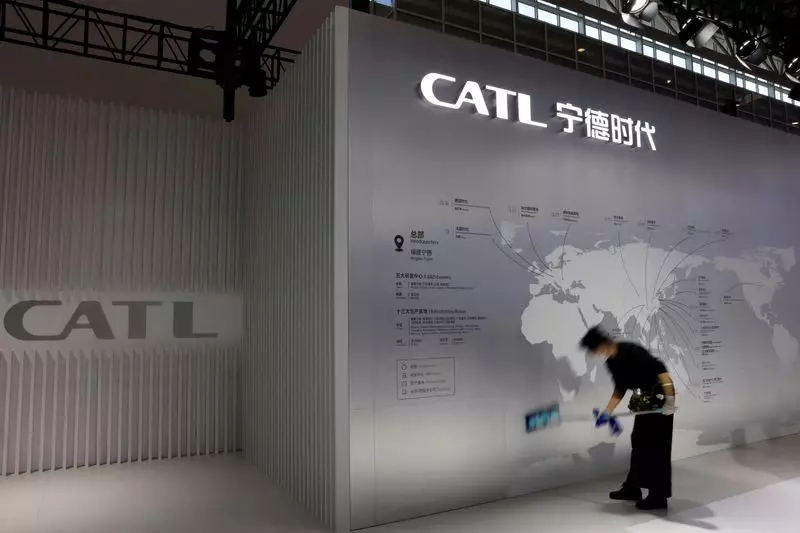In a significant development that underscores the increasing tensions between the United States and China, the U.S. Defense Department has updated its list of companies it claims are linked to the Chinese military. This expanded list includes prominent firms such as Tencent Holdings, CATL (Contemporary Amperex Technology Co. Limited), and several others engaged in sectors ranging from gaming and social media to advanced battery technology and drone manufacturing. The move has prompted immediate market reactions and drawn sharp responses from the companies listed, which vehemently dispute the Pentagon’s allegations.
The so-called “Section 1260H list” is mandated by U.S. law and compiled annually, specifying companies believed to be supporting China’s military ambitions. The recent update identified a total of 134 companies, signaling an intensified scrutiny of businesses operating within the U.S.-China economic theater. This designation not only carries reputational risks for the included firms but also marks a clear warning to U.S. investors regarding the potential hazards of engaging with these corporations. Analysts indicate that this formalization serves as a critical reference for multiple government sectors contemplating action against these alleged military-connected entities.
The initial market reaction to the newly-designated companies was swift and severe. Shares of Tencent, for instance, plummeted by as much as 7% in early trading, while CATL—a global leader in electric vehicle batteries—saw a decline of over 5%. The financial consequences extend beyond just immediate share price drops; the stigma attached to being listed can deter potential partnerships and investments, further amplifying the companies’ woes. Tencent has publicly labeled its inclusion as a “clearly a mistake”, stating its non-involvement with the military, which reflects the widespread anxiety among corporations regarding the implications of such designations.
Industry leaders have expressed their discontent with the U.S. government’s tactics. Numerous companies on the list, including Quectel and CATL, have issued statements proclaiming their innocence and commitment to civilian projects. Quectel emphasized its lack of military interaction and stated intentions to appeal to the Pentagon for a review of its designation. The companies’ pushback illustrates a broader concern about the arbitrary nature of the listing process and the potential for misinterpretation of a firm’s activities.
The latest additions to the military companies list come at a time of heightened scrutiny and suspicion regarding Chinese firms operating in the U.S. This trend reflects a broader strategy by American policymakers to limit China’s technological ascendancy, which they perceive as a direct threat to U.S. national security. Craig Singleton from the Foundation for Defense of Democracies articulated that the updated list signifies a more comprehensive approach towards safeguarding sensitive technologies, reinforcing the barriers surrounding critical industries.
Pressure has also been mounting from U.S. lawmakers, who have urged the Pentagon to include certain companies viewed as particularly problematic, notably CATL, which has drawn scrutiny due to its collaboration with American car companies like Ford. By licensing CATL technology for its Michigan battery plant, Ford has risked opposition from political factions concerned about national security and dependence on Chinese technology.
Although being added to the list does not incite outright bans immediately, the consequences for affected companies are profound. Firms may find it increasingly difficult to secure investments or enter cooperative agreements with American entities. The backlash is likely to heighten the existing caution among U.S. firms contemplating partnerships with Chinese tech companies, given the potential reputational damage and political ramifications tied to these associations.
Furthermore, the updated list may compel the U.S. Treasury Department to consider implementing sanctions against the implicated companies, which could exacerbate the financial and operational challenges faced by these firms. Previous cases, like those of DJI and Hesai Technologies, which remain on the list despite legal challenges, exemplify how persistent these designations can be.
As geopolitical tensions escalate, the latest Pentagon directive serves as a critical reminder of the complexities underpinning U.S.-China relations. The economic ramifications for Chinese tech firms are substantial, as is the potential for increased scrutiny over American companies considering collaborations. Ultimately, this development not only recalibrates the landscape for business interactions between the two powers but also sets a precedent for future engagement in a tightly monitored global technological market.

